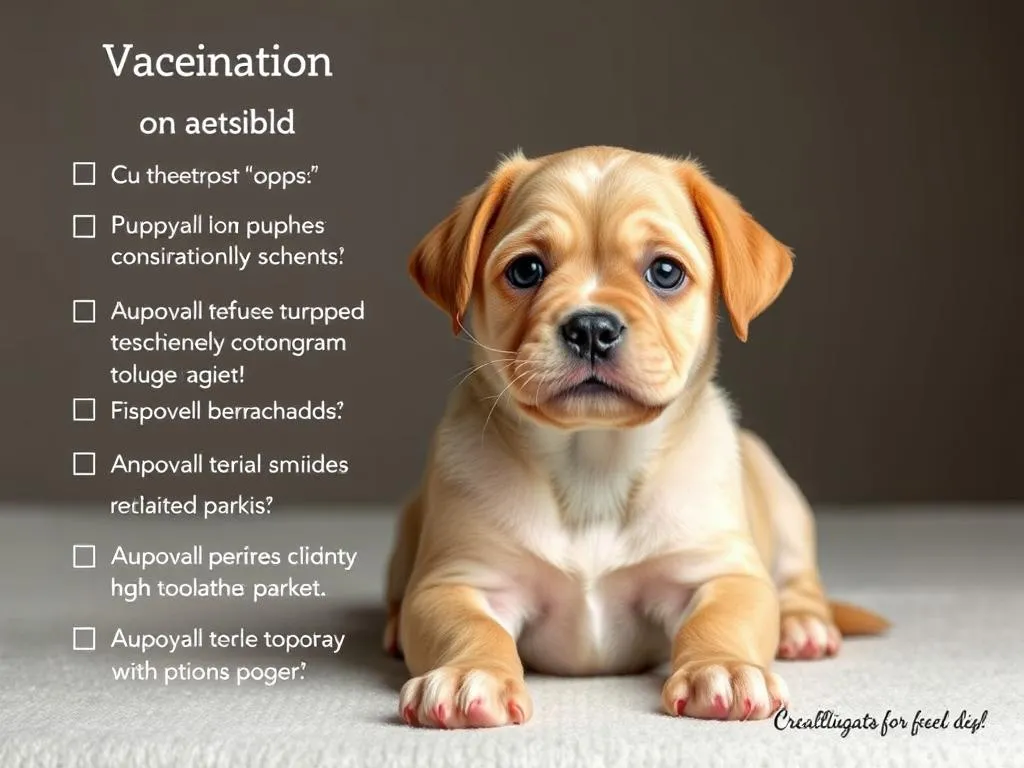
Introduction
Dog health care is a vital aspect of responsible pet ownership that encompasses various factors, including nutrition, exercise, and, importantly, vaccinations. Vaccination is a cornerstone of preventive health care for puppies, protecting them from a range of serious diseases that can lead to severe health complications or even death. This article will provide a detailed overview of the puppy vaccination schedule, including the types of vaccinations available, timing, and important considerations to keep in mind as your puppy grows.
Understanding Vaccinations
What Are Vaccinations?
Vaccinations are medical preparations that enhance the immune system’s ability to recognize and fight off specific pathogens, such as viruses and bacteria. They typically contain weakened or inactivated parts of the pathogen, stimulating the immune system to produce antibodies. This process ensures that if a puppy is later exposed to the actual disease, its immune system is equipped to combat it effectively.
Types of Vaccinations for Puppies
Vaccines for puppies are generally categorized into two groups: core and non-core vaccines.
Core Vaccines
Core vaccines are essential for all puppies, as they protect against the most common and severe diseases. The core vaccines include:
- Distemper: A highly contagious viral disease that affects the respiratory, gastrointestinal, and nervous systems.
- Parvovirus: A viral infection that causes severe gastrointestinal illness and is often fatal if untreated.
- Adenovirus (Canine Hepatitis): A viral disease affecting the liver, kidneys, and eyes, leading to severe illness.
- Rabies: A fatal viral disease transmitted through bites from infected animals, affecting the nervous system.
Non-Core Vaccines
Non-core vaccines are recommended based on a puppy’s lifestyle, environment, and exposure risks. These include:
- Bordetella (Kennel Cough): A highly contagious respiratory disease, particularly among dogs in close quarters.
- Lyme Disease: Spread by ticks, this disease can lead to serious joint, heart, and kidney issues.
- Leptospirosis: A bacterial infection that can lead to kidney damage and liver failure, often transmitted through contaminated water.
The Puppy Vaccination Schedule
Establishing a puppy vaccination schedule is crucial for ensuring your puppy receives the necessary protection at the right times.
Initial Vaccination Series
The initial vaccination series typically occurs in three stages:
- First Vaccination (6-8 Weeks): The first set of vaccines is usually administered between six and eight weeks of age. This includes the first dose of core vaccines.
- Second Vaccination (10-12 Weeks): The second round of vaccinations is given at 10 to 12 weeks, building on the immunity established by the first dose.
- Third Vaccination (14-16 Weeks): The final vaccination in the primary series occurs at 14 to 16 weeks, completing the core vaccine set.
Following this series, it’s important to schedule follow-up visits to ensure your puppy is developing immunity effectively.
Rabies Vaccination
The rabies vaccination is a critical component of your puppy’s health care. It is typically administered at around 12 to 16 weeks of age, depending on local laws and regulations. Many regions require rabies vaccinations by law, and failure to comply can result in fines or other penalties. It’s essential to check your local regulations to ensure you are meeting all requirements.
Booster Shots
Booster shots are necessary to maintain immunity once your puppy becomes an adult dog. Generally, adult dogs will require boosters for core vaccines every one to three years, depending on the specific vaccine and local regulations. Keeping up with booster shots is vital for the ongoing health and protection of your dog.
Factors Affecting Vaccination Schedules
Several factors can influence a puppy vaccination schedule, including breed-specific considerations, health status, and lifestyle.
Breed-Specific Considerations
Certain breeds may have unique vaccination needs or predispositions to specific health issues. For example, breeds known for having weakened immune systems might require a different vaccination approach. Researching breed-specific health risks can help you tailor your puppy’s health care strategy effectively.
Health Status of the Puppy
If your puppy has underlying health issues, its vaccination schedule may need to be adjusted. Puppies with health problems may not respond as well to vaccines, and a veterinarian consultation is essential in these cases. Always discuss any health concerns with your veterinarian to ensure your puppy’s vaccination plan is safe and effective.
Lifestyle and Environment
Living conditions can significantly impact vaccination needs. Puppies that frequently visit dog parks, attend training classes, or are exposed to other animals may require additional vaccinations to prevent diseases. Conversely, puppies in less populated areas with minimal exposure might have different needs. Evaluating your puppy’s lifestyle is crucial in determining the best vaccination schedule.
Common Concerns About Vaccinations
When it comes to vaccines, many pet owners have questions and concerns. Here are common topics associated with puppy vaccinations.
Side Effects of Vaccines
While vaccinations are generally safe, some puppies may experience mild side effects, such as:
- Lethargy
- Slight fever
- Mild swelling or tenderness at the injection site
These side effects usually resolve on their own within a day or two. However, if your puppy displays severe reactions—such as difficulty breathing, swelling of the face, or persistent vomiting—contact your veterinarian immediately.
Misconceptions About Vaccination
There are many myths surrounding canine vaccinations, including the belief that vaccines can cause the diseases they protect against. This is largely unfounded; vaccines are designed to prevent disease, not cause it. It’s crucial to trust evidence-based information and consult veterinarians for reliable guidance on vaccinations.
Additional Health Care Tips for Puppies
In addition to vaccinations, several other health care practices are vital for your puppy’s overall well-being.
Regular Vet Check-Ups
Routine veterinary visits are essential for monitoring your puppy’s health. These check-ups typically include physical examinations, vaccinations, and discussions about nutrition and behavior. Expect your vet to assess your puppy’s growth, weight, and any potential health concerns.
Nutrition and Diet
Proper nutrition is fundamental for your puppy’s health and development. A balanced diet rich in essential nutrients supports growth and the immune system. Consult your veterinarian for recommendations on high-quality puppy food and any necessary supplements to ensure optimal health.
Exercise and Socialization
Regular exercise is crucial for a puppy’s physical and mental well-being. Daily walks, playtime, and opportunities for socialization with other dogs and people help promote healthy development and behavior. Establishing a routine early on will benefit your puppy in the long run.
Conclusion
Following a proper puppy vaccination schedule is vital for protecting your furry friend from preventable diseases. Vaccines play a crucial role in ensuring your puppy grows into a healthy adult dog. Prioritizing your puppy’s health care through regular vaccinations, vet visits, and responsible ownership practices sets the foundation for a long, happy life together.
FAQs
What should I do if I miss a vaccination?
If you miss a scheduled vaccination, contact your veterinarian as soon as possible to determine the next steps. They may recommend rescheduling or adjusting the vaccination plan.
Can my puppy get vaccinated if it is sick?
If your puppy is ill, it’s essential to consult your veterinarian before proceeding with vaccinations. Some illnesses may require postponing vaccinations to ensure the puppy’s safety and health.
Are there alternatives to traditional vaccinations?
While some alternative vaccination methods exist, such as titers that measure immunity levels, traditional vaccinations remain the most reliable way to ensure your puppy’s protection. Discuss any concerns with your veterinarian.
How do I find a qualified veterinarian?
To find a qualified veterinarian, ask for recommendations from friends, family, or local pet organizations. Research online reviews and check for qualifications to ensure you select a veterinarian who aligns with your needs and those of your puppy.









